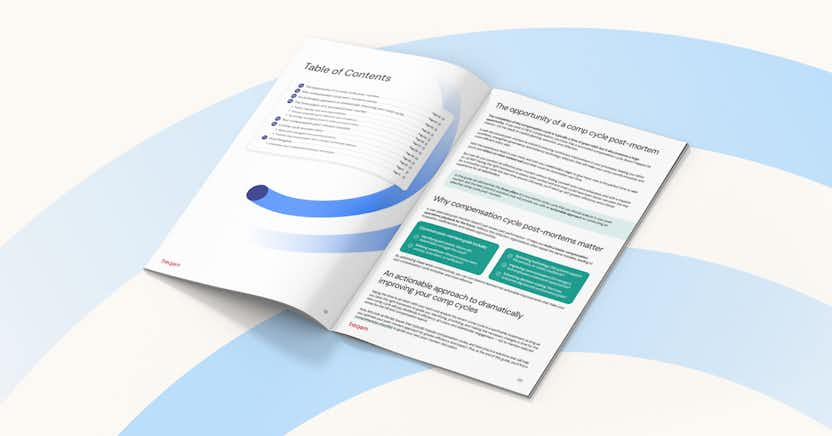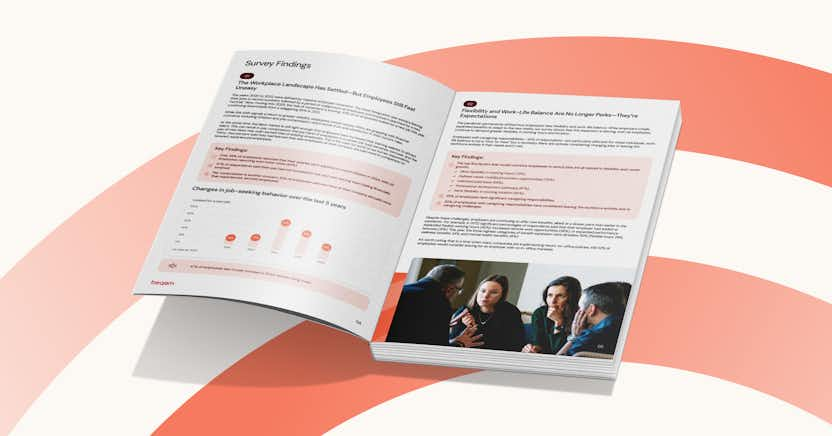Can Performance Management Practices Help to Foster Diversity, Equity, Inclusion, and Belonging?

In today's rapidly changing world, promoting diversity, equity, inclusion, and belonging (DEIB) in the workplace is not only an ethical matter, it's also a strategic business decision. Organizations that prioritize DEIB initiatives both create a positive and inclusive work environment but also gain a competitive edge by staying in tune with the diversity of the larger society. In this blog, we will explore the multifaceted importance of DEIB to a company's success and look at how performance management practices and software can support these essential goals.
Understanding diversity, equity, inclusion, and belonging
First, let’s look at what these terms mean from an HR perspective.
Diversity: Diversity encompasses the visible and invisible qualities that make individuals unique, including but not limited to race, ethnicity, gender, age, sexual orientation, physical abilities, and religious beliefs. Embracing diversity means creating a workforce that reflects the wide range of backgrounds, perspectives, and experiences present in society.
Equity: Equity focuses on providing fair opportunities and resources to all individuals, acknowledging and addressing historical disadvantages, and ensuring that everyone has equal access to growth and success.
Inclusion: Inclusion involves creating a culture where individuals feel valued, respected, and included, regardless of their differences. It is about fostering a sense of acceptance and enabling each person to contribute their authentic selves to the organization. It deals with how fully a company embraces its employees.
Belonging: Belonging refers to the feeling of being accepted, valued, and supported within a community or organization. It goes beyond mere inclusion and emphasizes the emotional connection and sense of purpose individuals experience within their workplace. It deals with how fully an employee embraces the company.
The business case for DEIB
There are solid business reasons why companies pursue DEIB strategies, including:
Wider talent pool. When companies prioritize DEIB, they can attract individuals from different backgrounds who are seeking opportunities where they feel respected, valued, and have equal opportunities for growth. By appealing to candidates from various demographic groups, organizations can access a broader labor pool and range of skills, experiences, and perspectives.
Increased innovation and creativity. Diversity in the workforce brings together a variety of perspectives, experiences, and backgrounds. This diversity fuels innovation and creativity, enabling companies to develop products and services that cater to a broader range of customers. A diverse workforce can offer unique insights and ideas that resonate with broader market segments.
Expanded market reach. Embracing DEIB allows organizations to connect with a wide customer base. By having a workforce that mirrors the diversity of the larger society, companies can better understand and meet the needs and preferences of different customer segments. This inclusivity can lead to increased customer loyalty, market share, and expanded business opportunities.
Enhanced decision-making. Inclusive teams and diverse leadership contribute to better decision-making processes. When a culturally varied group of individuals brings their perspectives to the table, it challenges assumptions, reduces groupthink, and fosters robust discussions. This leads to more thoughtful and well-rounded decisions that take into account a broader range of considerations.
Improved employee engagement, productivity, and retention. Inclusive workplaces cultivate a sense of belonging and psychological safety, promoting higher levels of employee engagement, productivity, and retention. When employees feel valued, respected, and supported, they are more likely to be motivated, committed, and loyal to the organization. This leads to increased productivity and a stronger talent pipeline.
Enhanced reputation and brand value: Companies that prioritize DEIB send a powerful message to both employees and customers. Such organizations are seen as socially responsible, ethical, and progressive, leading to an enhanced reputation and brand value. This can attract top talent, foster positive customer perception, and strengthen long-term relationships with stakeholders.
Reduced risk. The flip side of DEIB might include exclusionary hiring practices. Companies that do not actively pursue DEIB values risk allowing a non-inclusive, non-welcoming culture to develop, which in turn risks the loss of key talent and potentially opens up liability for lawsuits if actual discrimination occurs.
The ethical aspects of DEIB
Promoting diversity, equity, inclusion, and belonging goes beyond business advantages—many companies feel it is fundamentally the right thing to do. Here's why:
Equality and fairness. Embracing DEIB aligns with the principles of equality and fairness. It recognizes that all individuals, regardless of their background, should have equal opportunities, access to resources, and the ability to thrive in the workplace.
Social responsibility. Companies have a social responsibility to contribute positively to society. Embracing DEIB not only supports individuals within the organization but also sets an example for other businesses, fostering a culture of inclusivity and equity that extends beyond the workplace.
Talent development and empowerment. DEIB practices create an environment where all employees can develop their skills, contribute their unique perspectives, and reach their full potential. By empowering individuals from diverse backgrounds, organizations can uplift communities and contribute to societal progress.
Performance management software's role in supporting DEIB
Promoting diversity, equity, inclusion, and belonging is not only a smart business strategy but also a socially responsible and ethical choice. By fostering an inclusive work environment, organizations can tap into the diverse perspectives and experiences that reflect the broader society. This leads to increased innovation, expanded market reach, improved decision-making, enhanced employee engagement, and a stronger brand reputation.
Having the right platform for managing performance can make it easier to create a culture of DEIB, by supporting:
Goal setting and alignment. Performance management software can provide a platform for aligning individual goals with DEIB objectives, ensuring that employees understand how their work contributes to fostering an inclusive and diverse culture.
Continuous feedback and recognition. Performance management software that supports ongoing feedback and recognition allows employees to support and acknowledge their colleagues who exemplify DEIB values. This mechanism encourages a culture of appreciation and reinforces behaviors that promote diversity, equity, inclusion, and belonging.
Coaching and development. Performance management software can facilitate regular check-ins and coaching conversations, enabling managers to provide guidance and support that helps employees navigate challenges related to DEIB. It promotes individual growth and cultivates inclusive leadership skills.
Unbiased performance evaluations. Utilizing performance management software with standardized evaluation criteria and supported by 360 feedback minimizes unconscious biases that may affect performance assessments. Objective evaluations contribute to creating an equitable workplace, ensuring promotions and rewards are based on merit.
Data-driven insights. Performance management software can generate valuable data and analytics on DEIB-related metrics. This data provides insights into areas that need improvement, informs decision-making, and enables organizations to track their progress toward DEIB goals.
DEIB aligns with the principles of equality, social responsibility, and talent development, driving positive change within the organization and beyond. By embracing DEIB as both a business imperative and an ethical responsibility, companies can create a workplace where everyone feels valued, empowered, and motivated to succeed.
For information about how beqom Continuous Performance Management can support your DEIB goals and create a high-performing culture, contact us at beqom.
1 Gartner, How Technologies Can Help D&I Leaders Power Organizations Beyond Resilience, by John Kostoulas, 28 July 2021.
Gartner does not endorse any vendor, product or service depicted in its research publications, and does not advise technology users to select only those vendors with the highest ratings or other designation. Gartner research publications consist of the opinions of Gartner’s research organization and should not be construed as statements of fact. Gartner disclaims all warranties, expressed or implied, with respect to this research, including any warranties of merchantability or fitness for a particular purpose.
GARTNER is a registered trademark and service mark of Gartner, Inc. and/or its affiliates in the U.S. and internationally and is used herein with permission. All rights reserved.
















